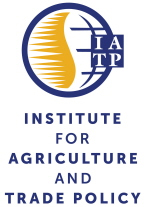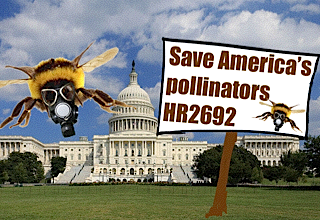 The CAP reform discussions taking place in Europe and the 2012 Farm Bill debate just getting underway in the US provide an important opportunity for farmers and others concerned about food and agriculture policy to address the unsustainable conditions of modern agriculture and find ways to reverse course. Despite differences, the two programs have a great deal in common.
The CAP reform discussions taking place in Europe and the 2012 Farm Bill debate just getting underway in the US provide an important opportunity for farmers and others concerned about food and agriculture policy to address the unsustainable conditions of modern agriculture and find ways to reverse course. Despite differences, the two programs have a great deal in common.
The European Union’s Common Agricultural Policy (CAP) and the US Farm Bill have a shared origin and many original common objectives. World War II left both Europe and the US searching for solutions to the problems of agricultural production, supply management, and fair prices and markets. Farm Bill legislation took shape in the New Deal policies of President Roosevelt and the Agricultural Adjustment Act of 1936. The CAP came out the post-war Treaty of Rome (1958) and the start of the European Union.
The 1962 CAP and the 1947 Farm Bill (still, today, the underlying legislation of US farm policy should the Congress fail to act) have been the focus of a conflict over free trade and supply management for over 50 years. The battle between farmers and corporations has led to structural over-production and the creation of an industrial export–oriented agriculture that dominates world markets. Unfortunately, American and European farmers have often been unwittingly pitted against each other by agribusiness in this perennial battle.
The success of globalization has eliminated most of the post-WWII safeguards of both the CAP and the Farm Bill, producing volatile markets driven by speculation, highly concentrated agricultural industries and massive movements of farmers off the land. Speaking to American farmers in 1988, Dr. Sicco Mansholt, an architect of the CAP, warned against allowing trade policy to determine agriculture policy. “Agriculture policies are more than production and trade. They are decisive for the social well-being of the farming population; decisive for the socio-demographic issues of the total society; and decisive for the environmental circumstances.”
While the fundamental concerns of Dr. Mansholt have not changed, a great deal else has. As we wrestle with getting beyond the Farm Bill and conducting a profound reform of the CAP, we must address the connections between agriculture and climate change, agriculture and development, and agriculture and new technologies. We come to the table recognizing the importance of supply management, international commodity reserves, anti-trust laws, environmental protection, food safety, plant and animal health standards, and the welfare and well-being of rural communities. To these we add health, justice and much more in our shared quest for an alternative model of agriculture.
ARC 2020 is leading the way and we at the Institute for Agriculture and Trade Policy (IATP) are honored to be in your company. The Agriculture and Rural Convention (ARC) has been our inspiration and we look forward to working with you and looking beyond the Farm Bill to create the future of agriculture.
Learn more about Farm Bill on the IATP website here: http://www.iatp.org/project/farm-bill-2012




